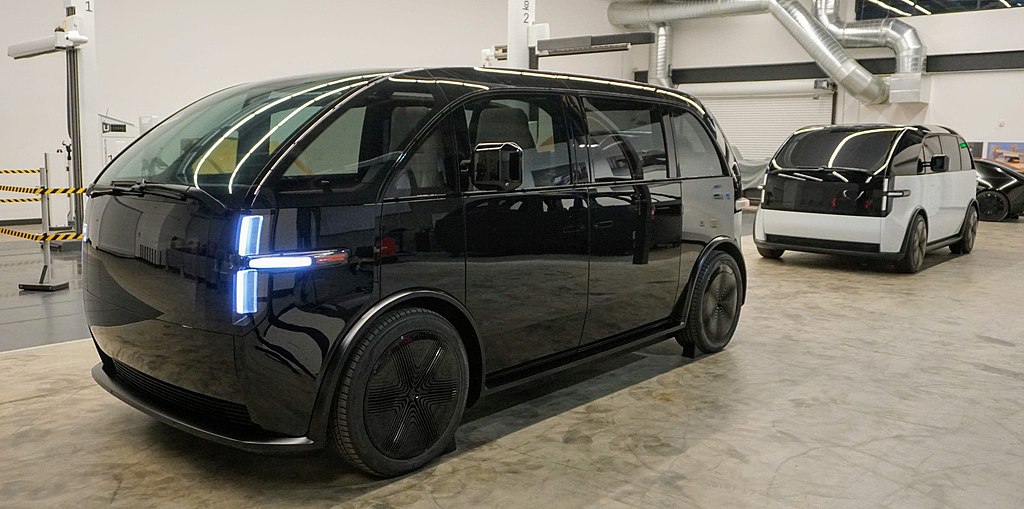Electric vehicle (EV) startup Canoo announced on Friday that it will file for Chapter 7 bankruptcy, ceasing operations effective immediately. The company, known for its innovative microbus-inspired cargo vans, has faced mounting financial challenges, including rapid cash burn and difficulty securing additional funding.
Canoo’s struggles highlight the challenges in the competitive EV market, where high production costs and fluctuating demand can test even the most innovative players. Despite efforts to carve out a niche with its uniquely designed vans, the company failed to generate the sales needed to sustain operations.
Founded with the vision of redefining commercial EVs, Canoo gained initial attention for its futuristic vehicle designs and plans to disrupt the delivery and logistics industry. However, scaling production proved difficult as rising material costs and a tough fundraising environment compounded the company’s problems.
The bankruptcy filing marks a disappointing end for Canoo, reflecting broader challenges for EV startups navigating a competitive market dominated by established players. Industry analysts note that uncertain demand, paired with investor caution, has made it increasingly difficult for smaller EV manufacturers to thrive.
Canoo’s collapse underscores the risks associated with scaling EV production without consistent funding or market validation. The company’s failure serves as a cautionary tale for startups aiming to break into the capital-intensive EV sector, where even innovative designs are no guarantee of success.
With its closure, Canoo joins the ranks of other failed EV ventures, signaling that the race for EV market dominance remains an uphill battle.
By filing for Chapter 7 bankruptcy, Canoo will liquidate its assets, marking the end of its ambitious but short-lived journey in the EV industry.



 TSMC Eyes 3nm Chip Production in Japan with $17 Billion Kumamoto Investment
TSMC Eyes 3nm Chip Production in Japan with $17 Billion Kumamoto Investment  TrumpRx Website Launches to Offer Discounted Prescription Drugs for Cash-Paying Americans
TrumpRx Website Launches to Offer Discounted Prescription Drugs for Cash-Paying Americans  Anthropic Eyes $350 Billion Valuation as AI Funding and Share Sale Accelerate
Anthropic Eyes $350 Billion Valuation as AI Funding and Share Sale Accelerate  FDA Targets Hims & Hers Over $49 Weight-Loss Pill, Raising Legal and Safety Concerns
FDA Targets Hims & Hers Over $49 Weight-Loss Pill, Raising Legal and Safety Concerns  SoftBank Shares Slide After Arm Earnings Miss Fuels Tech Stock Sell-Off
SoftBank Shares Slide After Arm Earnings Miss Fuels Tech Stock Sell-Off  Instagram Outage Disrupts Thousands of U.S. Users
Instagram Outage Disrupts Thousands of U.S. Users  SpaceX Prioritizes Moon Mission Before Mars as Starship Development Accelerates
SpaceX Prioritizes Moon Mission Before Mars as Starship Development Accelerates  SpaceX Pushes for Early Stock Index Inclusion Ahead of Potential Record-Breaking IPO
SpaceX Pushes for Early Stock Index Inclusion Ahead of Potential Record-Breaking IPO  Australian Scandium Project Backed by Richard Friedland Poised to Support U.S. Critical Minerals Stockpile
Australian Scandium Project Backed by Richard Friedland Poised to Support U.S. Critical Minerals Stockpile  Tencent Shares Slide After WeChat Restricts YuanBao AI Promotional Links
Tencent Shares Slide After WeChat Restricts YuanBao AI Promotional Links  Sony Q3 Profit Jumps on Gaming and Image Sensors, Full-Year Outlook Raised
Sony Q3 Profit Jumps on Gaming and Image Sensors, Full-Year Outlook Raised  Alphabet’s Massive AI Spending Surge Signals Confidence in Google’s Growth Engine
Alphabet’s Massive AI Spending Surge Signals Confidence in Google’s Growth Engine  CK Hutchison Launches Arbitration After Panama Court Revokes Canal Port Licences
CK Hutchison Launches Arbitration After Panama Court Revokes Canal Port Licences  Uber Ordered to Pay $8.5 Million in Bellwether Sexual Assault Lawsuit
Uber Ordered to Pay $8.5 Million in Bellwether Sexual Assault Lawsuit  Nvidia, ByteDance, and the U.S.-China AI Chip Standoff Over H200 Exports
Nvidia, ByteDance, and the U.S.-China AI Chip Standoff Over H200 Exports  Nvidia Nears $20 Billion OpenAI Investment as AI Funding Race Intensifies
Nvidia Nears $20 Billion OpenAI Investment as AI Funding Race Intensifies  Rio Tinto Shares Hit Record High After Ending Glencore Merger Talks
Rio Tinto Shares Hit Record High After Ending Glencore Merger Talks 




























